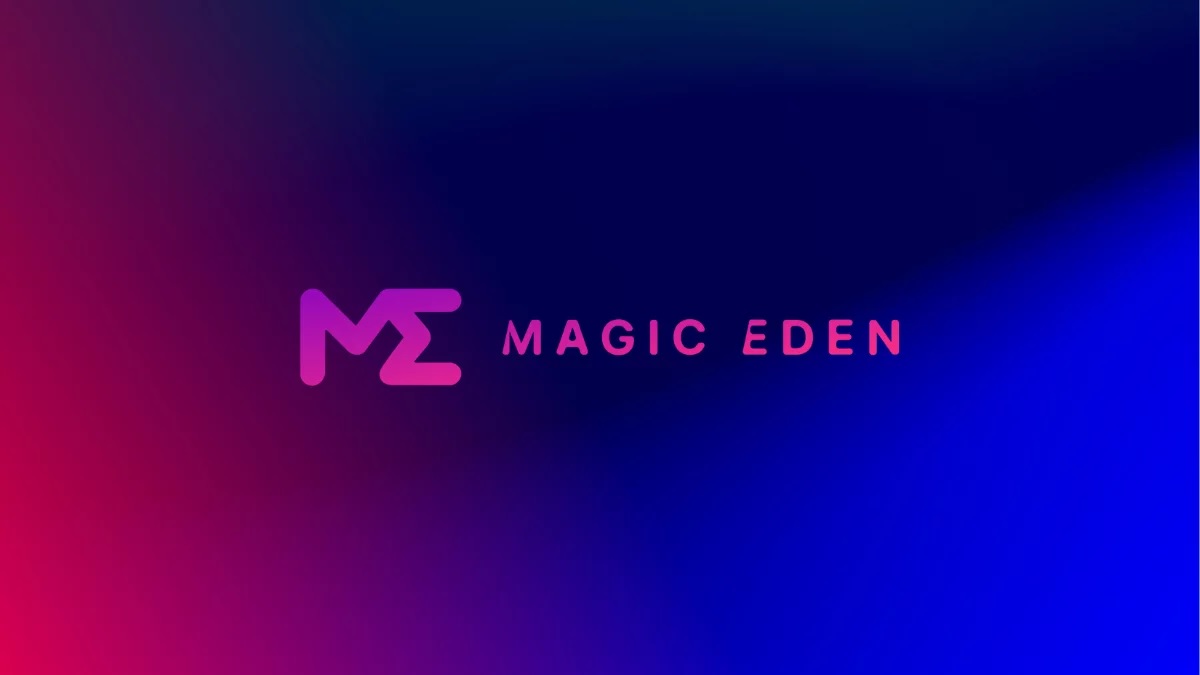Magic Eden Set to Launch Highly Anticipated Token Airdrop
21.11.2024 13:00 1 min. read Kosta Gushterov
Magic Eden, a leading NFT marketplace and decentralized exchange, is set to launch its highly anticipated ME token airdrop, generating considerable excitement among investors as the crypto market remains bullish.
The airdrop will be part of Magic Eden’s broader strategy to boost its platform’s growth and incentivize user engagement.
The ME token has a total supply of 1 billion, with 12.5% (125 million tokens) allocated for the initial airdrop. Over the next four years, 50.2% (502 million tokens) will be distributed across the community and ecosystem.
The breakdown includes 26.2% for contributors, 37.7% for the community, and 23.6% for strategic participants. Token distribution will be handled through Magic Eden’s mobile dApp, with an eligibility checker to be launched in advance to help users confirm their allocations.
Despite the buzz, some critics point to past issues with airdrop events from projects like X Empire and HMSTR, which faced last-minute changes to token allocation. Magic Eden will need to navigate these challenges carefully to maintain trust within its community.
CEO Jack Lu, however, remains optimistic, sharing that the ME token will become the platform’s native currency, offering staking rewards, ecosystem contributions, and governance rights to users, further solidifying the platform’s position in the market.
-
1
Pi Price Prediction: Top Community Member Believes PI Will Drop to $0.40
20.06.2025 23:05 3 min. read -
2
Ethereum ETFs See First Outflows After Record Inflow Streak
14.06.2025 15:00 1 min. read -
3
This Solana Memecoin Poised for Breakout, Says Analyst
20.06.2025 8:00 1 min. read -
4
Solana ETF Push Gains Momentum After Flurry of S-1 Updates
14.06.2025 21:00 1 min. read -
5
Altcoin Market Poised for Turbulence as Key Support Levels Flash Signals
16.06.2025 21:00 2 min. read
June’s Top-Performing Crypto Projects Across Key Metrics
A new report from on-chain analytics platform Santiment has identified standout crypto projects that posted the largest gains across various performance metrics during June 2025.
Binance to Delist Five Tokens on July 4
The move follows the exchange’s routine asset evaluations, which are aimed at maintaining quality standards and user protection.
Sui Price Prediction: SUI Surpasses BNB and HYPE Trading Volumes in June – $10 by July?
Sui (SUI) has gone up by nearly 4% in the past 24 hours and its performance is diverging from that of other altcoins after some interesting technical news. Popular trading accounts on X pointed out that Sui’s trading volumes in June surpassed those of well-established tokens like BNB Coin (BNB) and Hyperliquid (HYPER) by $7 […]
SEC Approves Grayscale ETF Tracking Top Five Cryptocurrencies
The U.S. Securities and Exchange Commission (SEC) has officially approved the conversion of the Grayscale Digital Large Cap Fund into an exchange-traded fund (ETF), finalizing its transition from an over-the-counter product into a fully regulated ETF structure.
-
1
Pi Price Prediction: Top Community Member Believes PI Will Drop to $0.40
20.06.2025 23:05 3 min. read -
2
Ethereum ETFs See First Outflows After Record Inflow Streak
14.06.2025 15:00 1 min. read -
3
This Solana Memecoin Poised for Breakout, Says Analyst
20.06.2025 8:00 1 min. read -
4
Solana ETF Push Gains Momentum After Flurry of S-1 Updates
14.06.2025 21:00 1 min. read -
5
Altcoin Market Poised for Turbulence as Key Support Levels Flash Signals
16.06.2025 21:00 2 min. read


